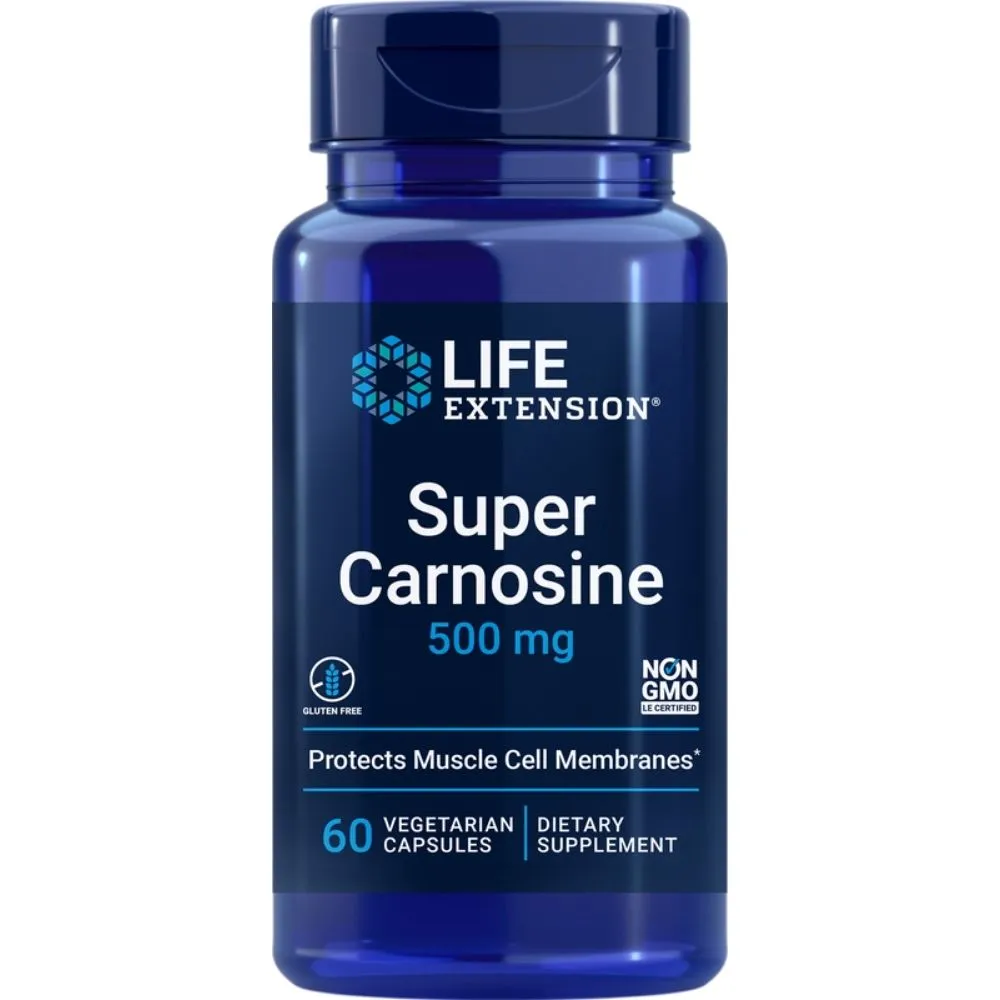500mg L-Carnosine (60 Caps) | Muscle Cell Membrane Protection
TV Doctor Customers: This L-Carnosine supplement supplies 500mg per capsule. TV Doctor's recommendation is also 500mg twice per day. We recommend taking 2 capsules per day. He says it's been seen to help with Alzheimers. It can also help improve your eyesight and will help you get your vitality back. This pill can take your body back 10 years to help get rid of wrinkles and make your skin look and feel better.
Carnosine is a multifunctional dipeptide made up of a chemical combination of the amino acids beta-alanine and L-histidine. It is found both in food and in the human body. Long-lived cells such as nerve cells (neurons) and muscle cells (myocytes) contain high levels of carnosine.28 Muscle levels of carnosine correlate with the maximum life spans of animals. Carnosine is a naturally occurring antioxidant that has been shown to be an anti-glycating agent.
This nutrient also has the ability to suppress formation of advanced glycation end products (AGEs) and reactive oxygen species (ROS), culprits in metabolic dysfunction and oxidative stress that can lead to age-related conditions.25 Carnosine levels decline with age. Muscle levels decline 63% from age 10 to age 70, which may account for the normal age-related decline in muscle mass and function.36
Since carnosine acts as a pH buffer, it can keep on protecting muscle cell membranes from oxidation under the acidic conditions of muscular exertion. Carnosine enables the heart muscle to contract more efficiently through enhancement of calcium response in heart myocytes.37
Aging causes irreversible damage to the body’s proteins. One underlying mechanism behind this damage is glycation. Glycation involves the non-enzyme controlled cross-linking of proteins and sugars to form non-functioning structures in the body. The process of glycation can be superficially seen as unsightly wrinkled skin. Glycation is also an underlying cause of age-related neurologic, vascular, and eye problems.38-49 Carnosine is a unique dipeptide that can interfere with the glycation process.
Benfotiamine, a derivative of thiamine (vitamin B1), provides additional protection against glycation reactions while guarding cells against the toxic effects of chronic glucose exposure. Even people with normal glucose levels encounter damaging sugar reactions over a lifetime. Benfotiamine protects against glucose-induced cell damage via several mechanisms.
Supplement Facts

 Cart(
Cart(










